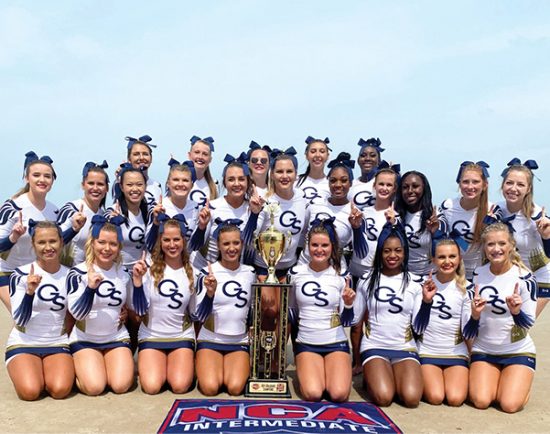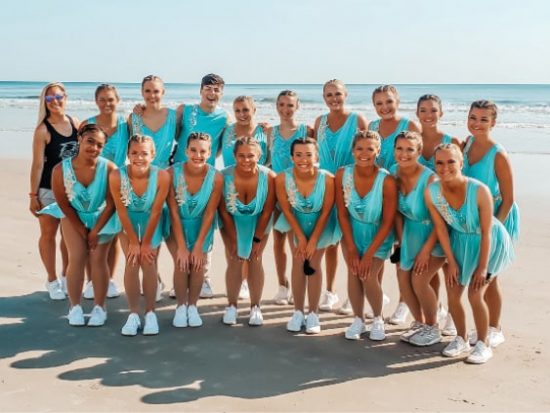One More Time
Georgia Southern Cheerleaders Win Seventh National Title

It’s been said that winning is a tradition at Georgia Southern University. As the 2021 National Cheerleaders Association reigning national champions, the Georgia Southern cheerleading program has a knack for keeping that tradition alive.
Since 2008, the cheerleading program has won seven national titles. The program’s coed team holds one national title, and the all-girl team holds six, including the 2021 Intermediate All-Girl Division IA title.
So what does it take to produce a national championship-winning team?
For Barry Munkasy, Ph.D., head coach of the cheer program and associate professor of kinesiology at the University, the best thing is to trust the process.
“It’s a process, and that process starts in August and it lasts nine months,” he said. “I don’t know exactly what I do that makes it work, but for me it’s the process of teaching them and motivating them to cheer over the nine months that leads to their ability to perform at the national championships.”
In fact, 2008 was the first year that Munkasy led the cheer program to the National Cheerleaders Association’s national collegiate competition in Daytona Beach, Florida, and the first time the all-girl team won a national title.
“The first championship was a complete and utter surprise,” he said. “We just went and did our best, and when our best was good enough, it was elation, but it was a lot of surprise, too.”
Jessica Curran (’09, ’11), who was captain of the first championship-winning, all-girl cheer team, still remembers the sense of pride she felt.
“Bringing home a national championship to your school is always something to be extremely proud of, but being the first team to do so, it absolutely gave me a sense of pride,” said Curran.
“I am very proud to say that I am part of a winning legacy and tradition at Georgia Southern University. Traditions are something that the University takes pride in, and I can confidently say that the cheerleading program has a winning tradition.”
To keep that tradition alive and to compete at such a high level requires mental and physical toughness, Munkasy said.
“It’s a grind and it takes a lot of work to get through everything that you have to go through over the nine months or so,” he said. “That process makes you mentally tough. At football games, they perform material that is relatively difficult, and they’re required to do it perfectly. And so that process of requiring perfection, even during the football season, plays a role in what they do at nationals.”
He also tries to establish a team-oriented mindset in members of both the coed and all-girl teams.
“You have to know that what you’re doing isn’t just for you,” said Jaedah Wheeler, civil engineering graduate student and all-girl cheerleader. “You always have to be in the mindset to be better than you were yesterday, and I have to make sure I’m not the one who is holding my team back because I am not in shape or can’t perform a skill.”
While helping these athletes on skill and technique, Munkasy finds reward in mentoring students in their adult life.
“I really feel like this is my opportunity to have a major impact on the students at the University on a day-to-day personal basis,” he said. “As a professor, you provide them with the material that they need to know, but you don’t often get to know them at a much stronger level. So with coaching, I get to see these people come in as freshmen and try to help them to become adults from a social and an athletic perspective. I enjoy seeing them become adults and graduate and be successful after they graduate.”
Katherine Wagner, a marketing major and captain of the 2020-21 all-girl cheer team, has found structure and leadership opportunities through the cheer program.
“Cheer helps build character and hard work ethic, especially knowing that it’s never really about just one person,” she said. “You have to do your job to the best of your ability and trust that other people will do their job to the best of their ability.”
Of course national champions face their fair share of challenges as well.
“There were definitely hardships,” Wagner said. “It’s never easy having to listen to all the different opinions and ways things could be done better. But at the end of the day, when everything does come together and your teammates figure out why you did things the way you did and they appreciate them, it just makes everything all that much more rewarding.”
Being a cheerleader at Georgia Southern requires students to balance academics, 20 hours of practice per week, game attendance, work and social life. Because the cheer program isn’t an NCAA sport and not fully funded by the University, the cheerleaders are also responsible for fundraising during the year through various events.
“There’s no guarantee in any particular year that we’re going to be able to compete,” Munkasy said. “It’s all based on the fundraising they do and the support that the community and alumni give us. A lot of people think cheerleaders are on scholarships, but they are not.”
As a coach, Munkasy said time management, injuries and communication are standard challenges year to year. But coaching a team of national champions during a pandemic was a special task.
“They really had to focus on their personal health and their personal practices, and that made our practices and our work very difficult,” he said.
Quarantine requirements, weekly testing and cheering from the stands at athletics events instead of on the sideline where many skills are practiced in preparation for nationals were unique trials in the process of preparing for nationals.
Most challenging of all, though, was when a teammate tested positive for COVID-19 a few weeks before nationals, resulting in a large quarantine and a loss of two weeks of practice.
“That was really devastating to us, so going into the competition we were just hoping for the best,” Wheeler said. To the team’s surprise, the challenges quickly faded upon resuming practice.
“I don’t know what happened the week before nationals, but our team meshed and we became essentially a dream team overnight,” Wheeler said. “We all communicated better, there were no big problems and it was the best team experience. I’ve been on plenty of teams but we have never had that type of chemistry before.”
“They had never performed that routine that well until that day,” Munkasy added. “They peaked at the right moment.”
He added that a third place finish for the coed squad in the Intermediate Large Coed Division IA category was just as remarkable because four of the male team members had only been cheering since January when the team competed in April.
“That is a tremendous accomplishment for both teams,” Munkasy said.
— Crissie Elrick Bath
Georgia Southern Dance Team makes team history by performing in finals at national competition

In an unprecedented year, the Georgia Southern Dance Team made history in April when they performed in the Jazz Division 1A finals at the National Dance Alliance Collegiate Nationals competition in Daytona Beach, Florida. While the team was established in 1990 and has performed in the Division 1A Jazz competition since 2015, this was their first time performing in the finals.
In addition to working through a global pandemic, the team experienced a shift in leadership this year. Head coach Stephanie Viness had to step back while on maternity leave, and the team’s new assistant coach, Rebekah Macker, stepped up to lead the team.
“I have been the coach for the last three years, but I wanted the team to have a consistent face this year,” Viness said. “Rebekah had not been on the team prior, but she did a great job.”
From changing routines to practicing in shifts, the team withstood and thrived through challenges. Remembering their nationals performance brought Macker to tears.
“It was electrifying,” Macker said. “When they were about to go on stage, their intensity, their focus and their strength, it was almost palpable. I was extremely proud of them. They worked hard and knowing that they had the opportunity to perform at finals lit the fire more.”
For Emma Vickers, third-year member and team marketing director, the experience of performing in the finals was incomparable.
“I was grateful to be able to compete this year,” Vickers said. “I will never forget the feeling of representing Georgia Southern at nationals with my best friends and teammates.” — Kaitlin Anderson
